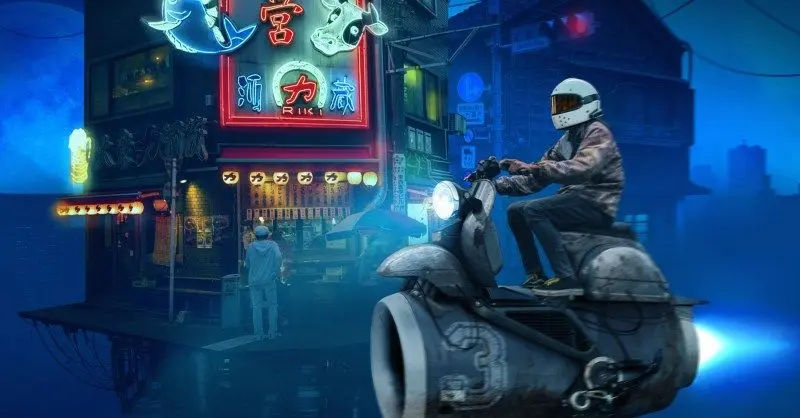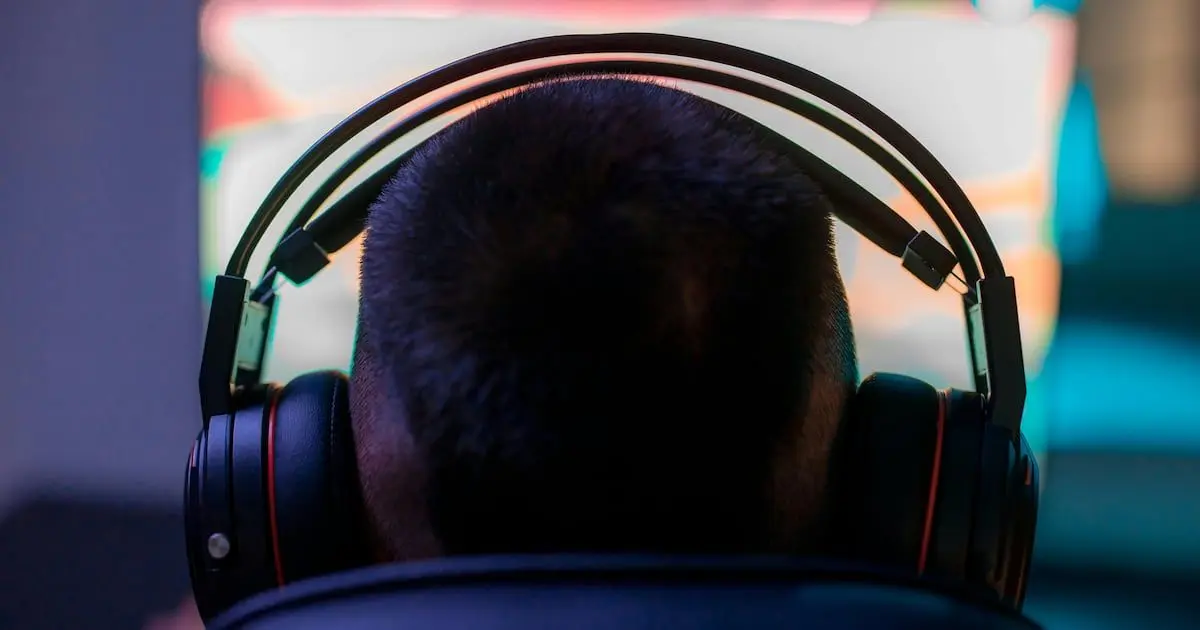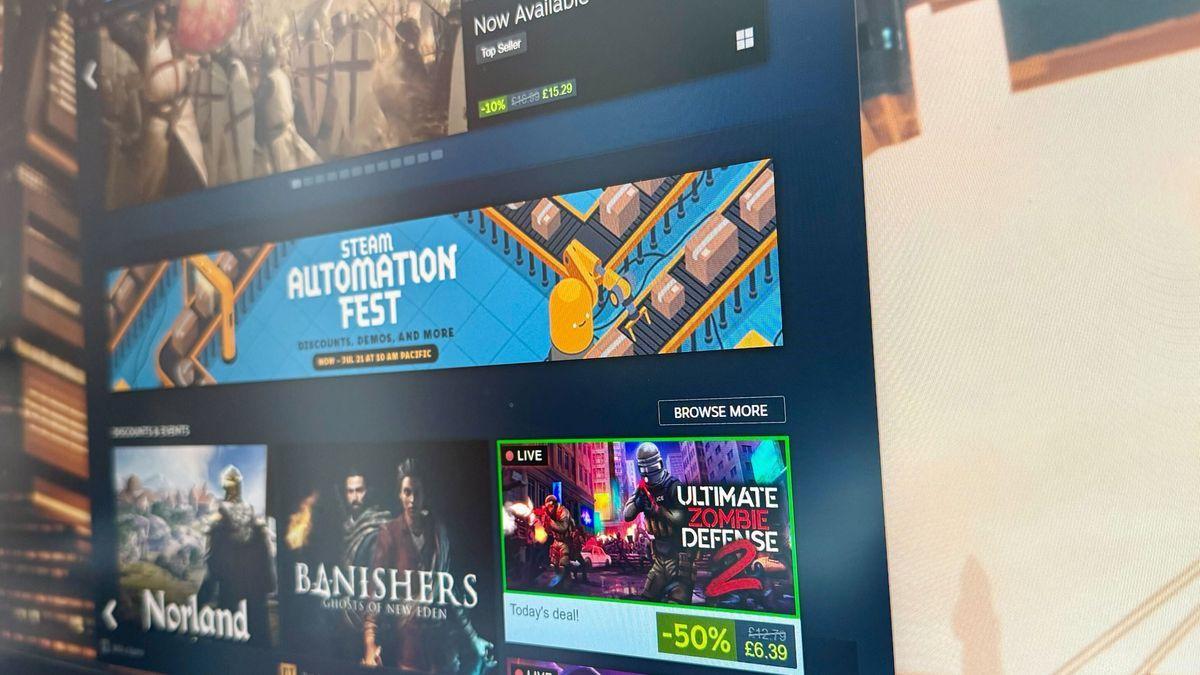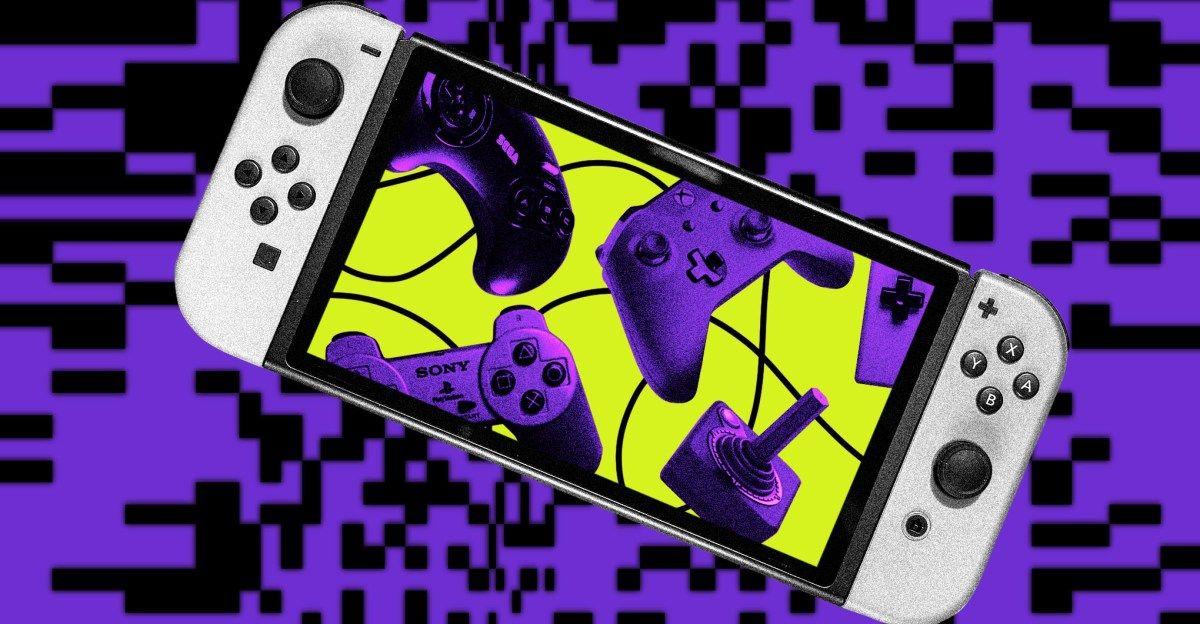Gaming Industry Grapples with AI Revolution as Developers Fear Job Displacement
3 Sources
3 Sources
[1]
AI-generated games are coming, and the wait might be short
What's happened? Artificial intelligence is moving into pretty much every industry, and the games business might be next for a major shake-up. Already, AI tools are helping boost frame rates and assist in development tasks, but now the vision is moving toward entire games being generated by AI systems. This isn't just speculation: earlier this year, Electronic Arts announced a partnership with Stability AI to explore AI-powered content creation, suggesting the shift may come sooner than we think. Adding fuel to the fire, Razer CEO Min-Liang Tan said on CNBC's podcast that AI could "completely disrupt everything" in gaming. That too, not in some distant future, but potentially within two years. * Tan highlighted how AI tools are already being used for development and testing tasks, and predicts the next leap will be full game creation via AI. * According to a survey by Game Developer, developers are now roughly four times more likely to believe generative AI will lower game quality than they were a year ago. * Some studios have emphasized that they are not replacing creative teams with AI, but just using it for specific roles such as text-to-speech or asset generation. Why this is important: The prospect of AI generating games at scale isn't just about faster production, but it also alters the economics and creative foundation of the industry. On one side, developers and studios could use AI to automate repetitive tasks, reduce lead times, and cut costs, which is the upside that Tan emphasises. On the flip side, though, such automation may reduce the need for writers, artists, QA testers & designers, shifting job roles and industry structure. At the creative level, many gaming industry veterans argue that while AI can generate assets, it cannot replicate human spontaneity, artistic intent, or those "happy accidents" that make games memorable. From the consumer side, there is risk of oversaturation: if more studios rely on AI to push titles out rapidly, we could end up with a flood of games that feel formulaic, bug-prone, or shallow -- undermining player trust and reducing meaningful innovation. Recommended Videos Why should I care? If you play video games, whether casually or competitively, the rise of AI-generated development could reshape what you play, how often new titles arrive, and how much studios invest in human creativity. Faster release cycles and cheaper production might bring more games to market, but it also raises real questions about quality, originality, and the future of the people who make the games you love. * AI-generated titles may flood the market, changing expectations around price, release pace, and game longevity. * Human-crafted games could become "premium experiences", while AI-heavy output becomes the new baseline. * The industry workforce may shift dramatically, with fewer traditional dev roles and more hybrid/AI-supervision work. Okay, so what's next? For now, the industry seems to be in a testing phase rather than a full-scale shift. Studios are experimenting with AI to speed up routine tasks, assist QA, and prototype ideas faster, while keeping core creative decisions in human hands. Many developers are openly cautious, stressing that narrative design, world-building, and emotional depth still depend on people, not models. At the same time, early examples of fully AI-generated gameplay floating around social media show how far the technology has to go, with bizarre physics, broken logic, and jumbled assets. As such, the path ahead looks more like gradual integration than an overnight takeover: AI will likely continue as a support tool, helping teams build faster and fix bugs sooner, while publishers and regulators sort out questions around copyrights, credits, and transparency. For now, AI-assisted development is real, but AI-directed game production is still more concept than reality.
[2]
Video game creators fear AI could grab the controller
Paris (AFP) - Generative artificial intelligence models capable of dreaming up ultra-realistic characters and virtual universes could make for cheaper, better video games in future, but the emerging technology has artists and developers on edge. Already, "generative AI is used a lot more in commercial game development than people realise, but it's used in very small ways" such as dubbing, illustrations or coding help, said Mike Cook, a game designer and computer science lecturer at King's College London. Such uses of AI are rarely noticeable for the player of the finished product, he added. One study from the American startup Totally Human Media found that almost 20 percent of titles available this year via the Steam distribution platform disclosed the use of generative AI during development. That would account for several thousand games released in recent years, including mass-market juggernauts like "Call of Duty: Black Ops 6" or the life simulation game "Inzoi". The growth of AI should allow studios to "merge several job roles into one, assisted by these tools", said AI consultant Davy Chadwick, who predicted a "30 to 40 percent boost" to developers' output. Progress has come at a rapid clip, with the latest tools able to generate 3D assets like characters or objects from a simple text prompt, which can then be dropped straight into a game world. "In the past, if you wanted to create a high-quality 3D model, it's going to take you two weeks and $1,000," said Ethan Hu, founder of the California-based startup Meshy.ai, which claims to have more than five million users. "Now the cost is one minute and $2," he said. High stakes Industry heavyweights have come at generative AI from different angles, with Electronic Arts partnering with the startup Stability AI while Xbox maker Microsoft develops its own model called "Muse". The stakes and potential rewards are high in the world's biggest cultural industry, worth almost $190 million in revenue in 2025, according to the data firm Newzoo. Industry actors hope new technology will both juice productivity and reduce the cost and time needed to develop a high-quality game, said Tommy Thompson, founder of the "AI and Games" platform. But "there's a lot of distrust and fear" among workers in a sector that has already gone through several waves of layoffs in recent years, said one employee at a French game studio on condition of anonymity. The tools "are supposed to make us more productive but would ultimately mean job losses", the worker added. His own experiences with AI in game development showed that in 3D modelling, "the objects produced by this kind of AI are extremely chaotic" and ill-suited to immediate use in-game. "For the moment it's frankly a deal-breaker... it takes as much time to fix it up as to make it" from scratch, the developer added. Such fears have kept major industry players from making waves about their use of AI. Microsoft, EA, Ubisoft and Quantic Dream all declined to comment when contacted by AFP. Rather than replacing artists, AI tools "allow them to speed up their creative process" by automating busywork, said Felix Balmonet, a co-founder of French 3D asset generation startup Chat3D. He added that his company was already working with "two of the five largest studios in the world". Picky players Some in the industry already fear that refusing to use generative AI tools would effectively mean dropping out of competition. "We will have to ask ourselves whether we use them on our next game," said the head of one French studio who is "personally against" AI models and just completed a multi-year project "without AI". Most publishers and investors contacted by AFP said the use of AI was not a factor in their decisions to finance a development project. "You have to be careful when using AI," said Piotr Bajraszewski, business development chief at 11 bit Studios in Poland. Gamers blasted his studio's latest project, "The Alters", after its June release for including AI-generated text that was not flagged up beforehand. The studio said the content was simply forgotten placeholder copy, but the incident underscored how much weight some players still give human creatives' work.
[3]
Video game creators fear AI could grab the controller
Paris, France -- Generative artificial intelligence models capable of dreaming up ultra-realistic characters and virtual universes could make for cheaper, better video games in future, but the emerging technology has artists and developers on edge. Already, "generative AI is used a lot more in commercial game development than people realize, but it's used in very small ways" such as dubbing, illustrations or coding help, said Mike Cook, a game designer and computer science lecturer at King's College London. Such uses of AI are rarely noticeable for the player of the finished product, he added. One study from the American startup Totally Human Media found that almost 20 percent of titles available this year via the Steam distribution platform disclosed the use of generative AI during development. That would account for several thousand games released in recent years, including mass-market juggernauts like "Call of Duty: Black Ops 6" or the life simulation game "Inzoi." The growth of AI should allow studios to "merge several job roles into one, assisted by these tools", said AI consultant Davy Chadwick, who predicted a "30 to 40 percent boost" to developers' output. Progress has come at a rapid clip, with the latest tools able to generate 3D assets like characters or objects from a simple text prompt, which can then be dropped straight into a game world. "In the past, if you wanted to create a high-quality 3D model, it's going to take you two weeks and (US)$1,000," said Ethan Hu, founder of the California-based startup Meshy.ai, which claims to have more than five million users. "Now the cost is one minute and $2," he said. Industry heavyweights have come at generative AI from different angles, with Electronic Arts partnering with the startup Stability AI while Xbox maker Microsoft develops its own model called "Muse". The stakes and potential rewards are high in the world's biggest cultural industry, worth almost $190 million in revenue in 2025, according to the data firm Newzoo. Industry actors hope new technology will both juice productivity and reduce the cost and time needed to develop a high-quality game, said Tommy Thompson, founder of the "AI and Games" platform. But "there's a lot of distrust and fear" among workers in a sector that has already gone through several waves of layoffs in recent years, said one employee at a French game studio on condition of anonymity. The tools "are supposed to make us more productive but would ultimately mean job losses," the worker added. His own experiences with AI in game development showed that in 3D modelling, "the objects produced by this kind of AI are extremely chaotic" and ill-suited to immediate use in-game. "For the moment it's frankly a deal-breaker... it takes as much time to fix it up as to make it" from scratch, the developer added. Such fears have kept major industry players from making waves about their use of AI. Microsoft, EA, Ubisoft and Quantic Dream all declined to comment when contacted by AFP. Rather than replacing artists, AI tools "allow them to speed up their creative process" by automating busywork, said Felix Balmonet, a co-founder of French 3D asset generation startup Chat3D. He added that his company was already working with "two of the five largest studios in the world." Some in the industry already fear that refusing to use generative AI tools would effectively mean dropping out of competition. "We will have to ask ourselves whether we use them on our next game," said the head of one French studio who is "personally against" AI models and just completed a multi-year project "without AI." Most publishers and investors contacted by AFP said the use of AI was not a factor in their decisions to finance a development project. "You have to be careful when using AI," said Piotr Bajraszewski, business development chief at 11 bit Studios in Poland. Gamers blasted his studio's latest project, "The Alters," after its June release for including AI-generated text that was not flagged up beforehand. The studio said the content was simply forgotten placeholder copy, but the incident underscored how much weight some players still give human creatives' work.
Share
Share
Copy Link
The gaming industry faces a potential transformation as AI tools become increasingly integrated into game development, with nearly 20% of Steam games now using generative AI. While promising efficiency gains, developers express concerns about job security and creative quality.
AI Tools Rapidly Penetrating Game Development
The gaming industry is experiencing a significant shift as artificial intelligence tools become increasingly integrated into game development processes. According to a study by Totally Human Media, nearly 20 percent of titles available on the Steam distribution platform this year disclosed the use of generative AI during development
2
. This represents several thousand games, including major titles like "Call of Duty: Black Ops 6" and the life simulation game "Inzoi."
Source: Digital Trends
Mike Cook, a game designer and computer science lecturer at King's College London, notes that "generative AI is used a lot more in commercial game development than people realize, but it's used in very small ways" such as dubbing, illustrations, or coding assistance
2
. These applications are typically invisible to players in the finished product.Dramatic Cost and Time Reductions
The technological advancement in AI-powered game development tools has been remarkable. Ethan Hu, founder of California-based startup Meshy.ai, which claims over five million users, illustrates the transformation: "In the past, if you wanted to create a high-quality 3D model, it's going to take you two weeks and $1,000. Now the cost is one minute and $2"
2
.AI consultant Davy Chadwick predicts that AI growth will allow studios to "merge several job roles into one, assisted by these tools," forecasting a "30 to 40 percent boost" to developers' output
2
. The latest tools can generate 3D assets like characters or objects from simple text prompts, which can then be integrated directly into game worlds.Industry Leaders Embrace AI Despite Caution
Major gaming companies are approaching AI integration from various angles. Electronic Arts has partnered with startup Stability AI to explore AI-powered content creation, while Xbox maker Microsoft is developing its own AI model called "Muse"
1
2
.Razer CEO Min-Liang Tan made bold predictions on CNBC's podcast, stating that AI could "completely disrupt everything" in gaming, potentially within two years rather than some distant future
1
. Tan emphasized how AI tools are already being used for development and testing tasks, predicting the next leap will be full game creation via AI.Developer Concerns and Quality Questions
Despite the promising efficiency gains, the gaming development community harbors significant concerns. According to a Game Developer survey, developers are now roughly four times more likely to believe generative AI will lower game quality than they were a year ago
1
.
Source: BNN
A French game studio employee, speaking anonymously, expressed the prevalent anxiety: "There's a lot of distrust and fear among workers in a sector that has already gone through several waves of layoffs in recent years. The tools are supposed to make us more productive but would ultimately mean job losses"
2
.The same developer reported practical challenges with current AI tools, noting that in 3D modeling, "the objects produced by this kind of AI are extremely chaotic" and ill-suited for immediate game use. "For the moment it's frankly a deal-breaker... it takes as much time to fix it up as to make it from scratch"
2
.Related Stories
Player Backlash and Industry Caution
The gaming community has shown sensitivity to AI usage, as demonstrated by the backlash against 11 bit Studios' "The Alters" project. Gamers criticized the studio after discovering AI-generated text that wasn't properly disclosed, even though the studio claimed it was forgotten placeholder content
2
. This incident highlighted how much weight players give to human creative work.Piotr Bajraszewski, business development chief at 11 bit Studios, cautioned that "you have to be careful when using AI," reflecting the industry's wariness about transparency and player acceptance
2
.Future Outlook and Market Implications
The stakes are substantial in what data firm Newzoo values as the world's biggest cultural industry, worth almost $190 billion in revenue for 2025
2
. Industry experts suggest the transformation will be gradual rather than revolutionary, with AI serving as a support tool while core creative decisions remain with human developers.Felix Balmonet, co-founder of French 3D asset generation startup Chat3D, argues that rather than replacing artists, AI tools "allow them to speed up their creative process" by automating routine tasks
2
. His company reportedly works with "two of the five largest studios in the world."Some industry leaders fear that refusing to adopt AI tools could mean falling behind competitively. One French studio head, personally opposed to AI models, acknowledged: "We will have to ask ourselves whether we use them on our next game"
2
.References
Summarized by
Navi
[1]
Related Stories
Generative AI Usage in Steam Games Surges by 700% in 2025, Raising Concerns and Opportunities
17 Jul 2025•Technology

Generative AI in Gaming: Developers and Industry Veterans Weigh In on Its Potential and Challenges
16 Oct 2024•Technology

Over Half of Game Developers Now Say Generative AI Is Harming the Gaming Industry
29 Jan 2026•Business and Economy

Recent Highlights
1
ByteDance's Seedance 2.0 AI video generator triggers copyright infringement battle with Hollywood
Policy and Regulation

2
Microsoft AI chief predicts artificial intelligence will automate most white-collar jobs in 18 months
Business and Economy

3
Anthropic and Pentagon clash over AI safeguards as $200 million contract hangs in balance
Policy and Regulation





